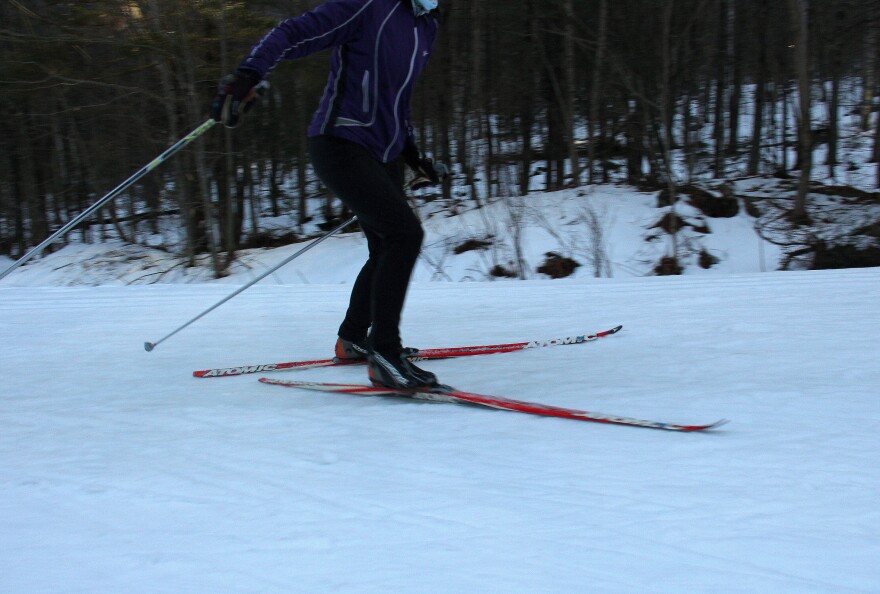Vermont’s alpine ski resorts had a pretty good year even though the weather this winter did not cooperate.
While the season's snowfall total was actually 15 inches above the 10-year average, snowstorms were often followed by warm and rainy weather.
The number of visits to downhill resorts was down less than half-a-percentage-point from the prior season, according to data collected by the non-profit trade group, the Vermont Ski Areas Association.
At the same time, resort visits were down 6.6% in the Northeast and 6.2% nationally. A series of late-season snowstorms and, for resorts in the northern half of the state, the total solar eclipse, helped boost numbers.
"For Vermont to remain relatively flat is really remarkable," said Molly Mahar, president of the Vermont Ski Areas Association. "And I think it’s directly attributable to their ability to provide those snow surfaces that keep people coming out even when Mother Nature maybe is a little stingy with the snow."
It was a different story for the cross-country ski industry, however. More reliant on natural snowfall than the resorts, the state's 26 ski touring centers reported 49.6% fewer visitors than the prior season.
According to the Vermont Climate Assessment, Vermont is getting warmer, wetter, and more variable—especially in winter. If the world does nothing to curb greenhouse gas emissions, it’s likely Vermont’s $1.6 billion ski industry will no longer be viable by 2080, due to a shortened season from lack of snow and cold temperatures.
Have questions, comments or tips? Send us a message.





